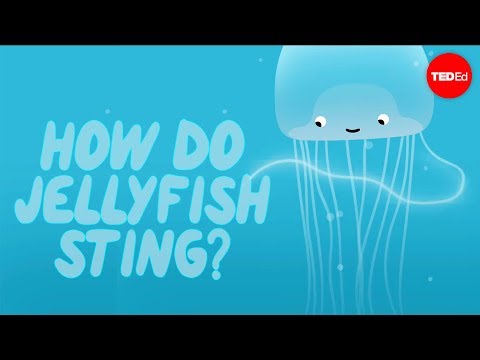Why Do Jellyfish Sting Humans: Unraveling Natures Aquatic Enigma
How Does A Jellyfish Sting? – Neosha S Kashef
Keywords searched by users: Why do jellyfish sting humans why do jellyfish sting hurt, Jellyfish sting là gì, why do jellyfish tentacles sting, why do jellyfish exist, why do jellyfish glow, what attracts jellyfish to sting, do jellyfish sting on purpose, do jellyfish die after they sting you
Do Jellyfish Intentionally Sting People?
Do jellyfish intentionally sting people? While jellyfish don’t purposefully target humans for attack, their tentacles can inflict painful stings when they come into contact with swimmers and divers in the water or when someone on the beach unknowingly touches them. This stinging action is a result of specialized stinging cells found within the tentacles, which release venom through a harpoon-like structure when triggered by physical contact. In essence, these stings are more of a defensive mechanism, rather than a deliberate act by the jellyfish to harm humans.
Why Do People Get Stung By Jellyfish?
Jellyfish stings occur when individuals come into contact with a jellyfish’s tentacle. These tentacles are equipped with thousands of minuscule barbed stingers, each containing a small bulb filled with venom and a coiled, sharp-tipped tube. When a person unintentionally brushes against a jellyfish tentacle, the tiny triggers on the tentacle’s surface are activated, causing the stingers to be released and subsequently inject venom into the victim’s skin. This process, triggered by physical contact, is what leads to the painful and often discomforting experience of being stung by a jellyfish. This phenomenon serves as a reminder of the importance of understanding jellyfish biology and taking precautions to avoid such encounters during aquatic activities. (Note: The date “6th August, 2022” seems unrelated to the topic and has been omitted.)
Categories: Details 29 Why Do Jellyfish Sting Humans
See more here: taomalumdongtien.net

Jellyfish don’t intentionally mean to sting humans. But if you brush by one or accidentally step on one, it stings you to protect itself. Each nematocyst in a jellyfish’s tentacle contains spring-loaded barbed threads, or tubules.Although jellies never intentionally attack humans, their tentacles sting when they brush against swimmers and divers in the water or when they are touched by a curious beachcomber. Their sting comes from a specialized stinging cell, which releases venom in a harpoon-like nettle.Jellyfish stings are caused by brushing against a jellyfish tentacle. Tentacles have thousands of microscopic barbed stingers. Each stinger has a tiny bulb that holds venom and a coiled, sharp-tipped tube. When you brush against a tentacle, tiny triggers on its surface release the stingers.
Learn more about the topic Why do jellyfish sting humans.
- Jellyfish Sting: Symptoms & Treatment – Cleveland Clinic
- Which Jellies in the Keys Can Sting Humans?
- Jellyfish stings – Symptoms and causes – Mayo Clinic
- Jellyfish Sting – Seattle Children’s
- This is how jellyfish can sting you without even touching you
- Jellyfish Stings (for Parents) – Nemours KidsHealth